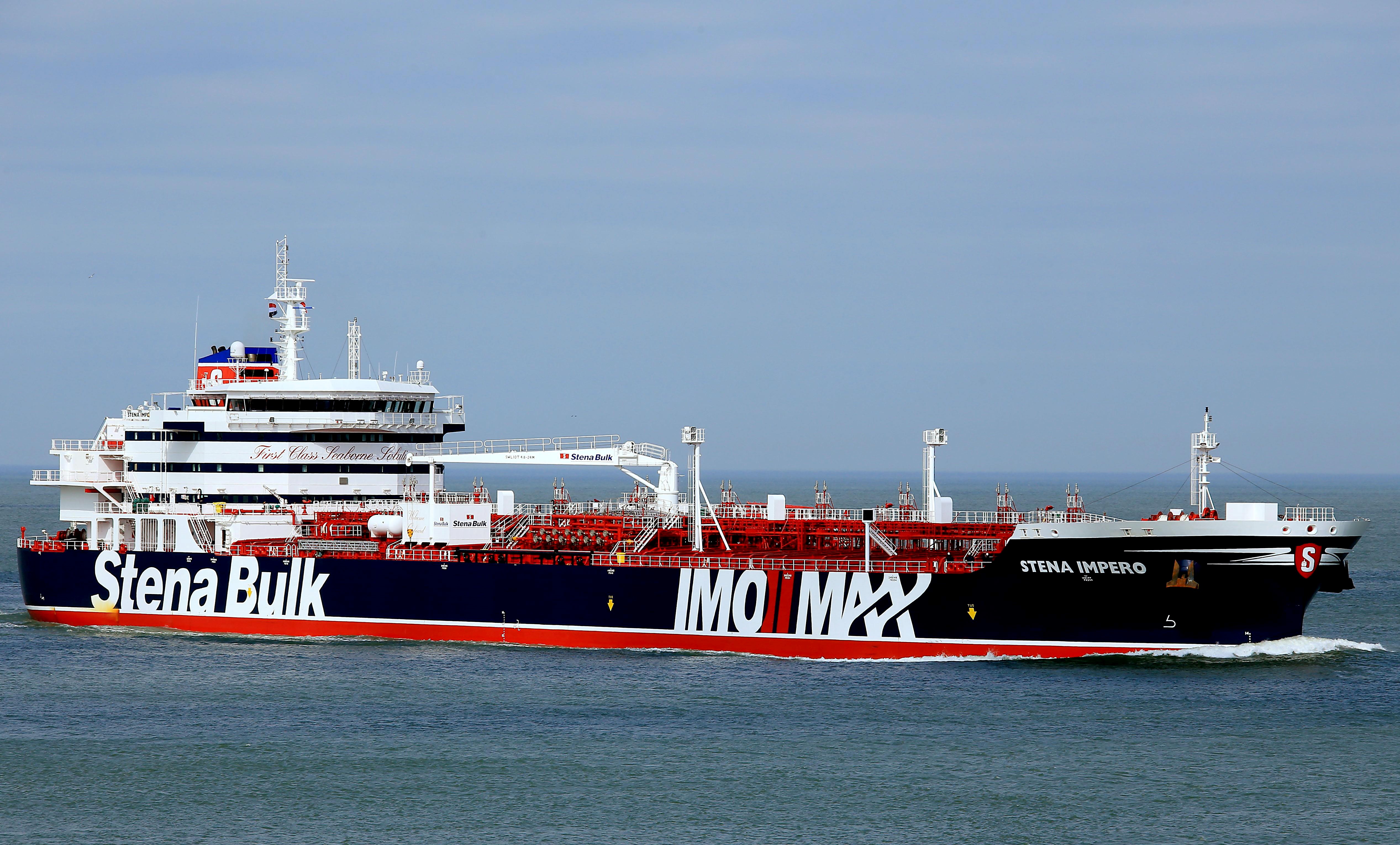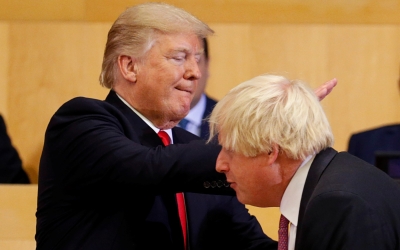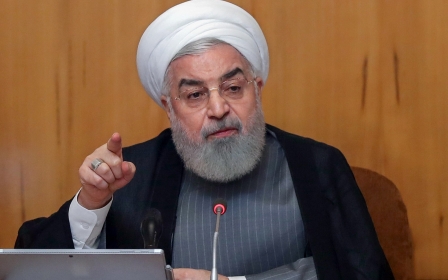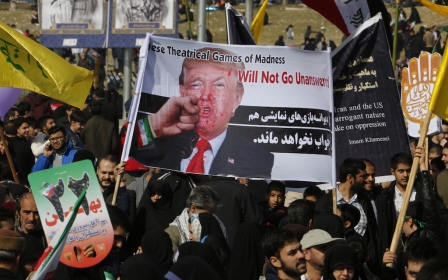How Britain can end the Iran tanker crisis
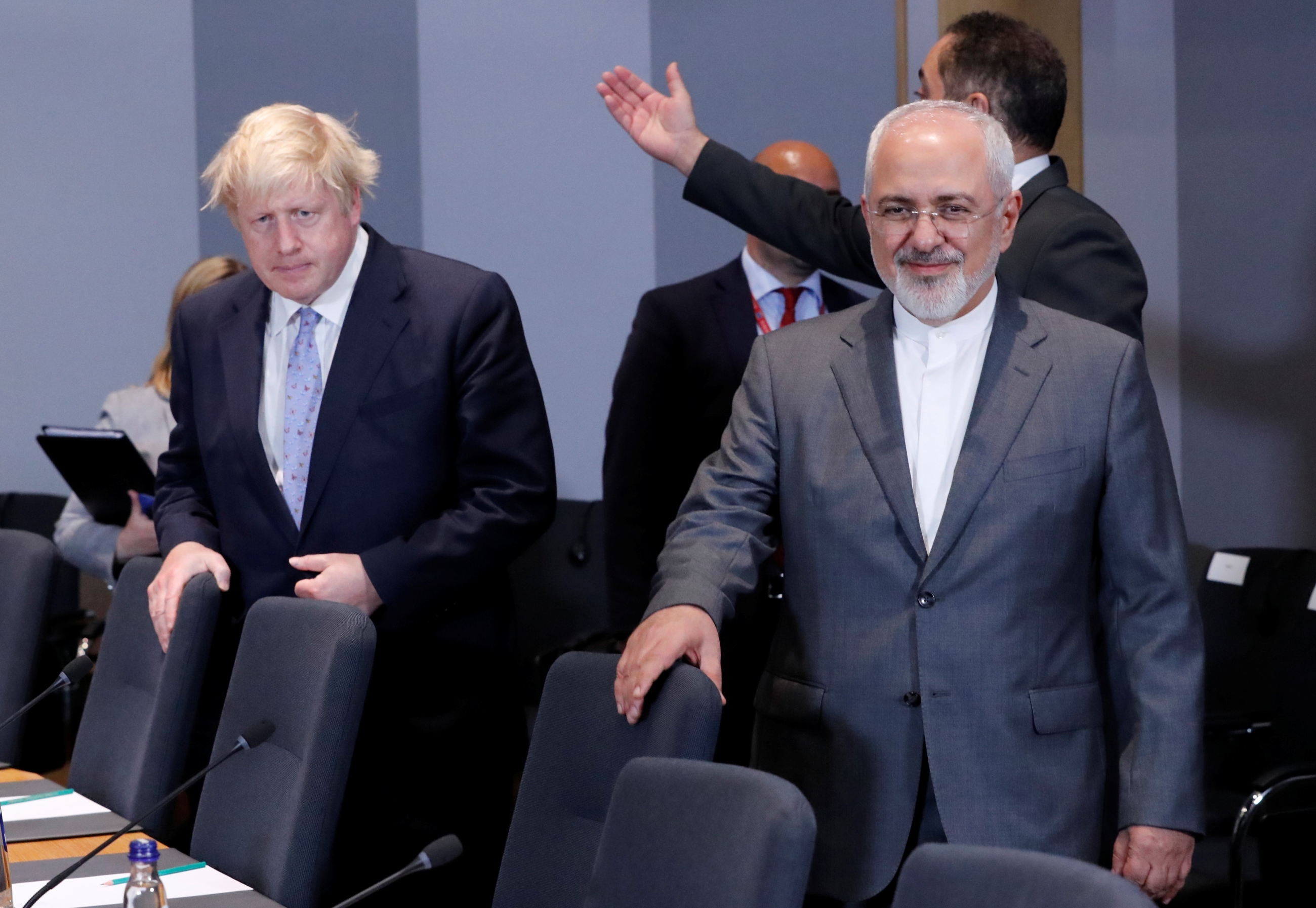
Weighing a proper response to Iran’s retaliatory hijacking of a British tanker in the Strait of Hormuz, the British government has wisely prioritised a diplomatic solution. It has, simultaneously, threatened Iran with sanctions if its call for the immediate release of the impounded tanker is ignored by Tehran.
But this is a two-way process: unless Iran’s tanker, held by the UK in Gibraltar since being seized in early July, is released, it is highly unlikely that Iran will buckle under pressure and return the British-flagged Stena Impero, for the following reasons.
A highly sensitive issue
First, despite the official justification citing Stena’s violation of maritime regulations, various Iranian politicians including Ali Larijani, the speaker of Iran's parliament, have made it abundantly clear that the revolutionary guard’s action was in response to the UK’s “hijacking” of Iran’s tanker over two weeks ago.
This is a highly sensitive political issue touching Iranian pride in standing up to Western bullying, as a result of which it is virtually impossible for the Iranian government to satisfy London’s demand without appearing weak and defeatist.
New MEE newsletter: Jerusalem Dispatch
Sign up to get the latest insights and analysis on Israel-Palestine, alongside Turkey Unpacked and other MEE newsletters
In other words, it would be political suicide for anyone inside or outside the government to push for meeting the British demand while Iran’s similar demand is ignored by the other side.
It is virtually impossible for the Iranian government to satisfy London’s demand without appearing weak and even defeatist
Second, as seen in the divergent opinions in the British press, including the commentary by former foreign secretary Jack Straw, the UK’s seizure of Iran’s tanker is on thin ice as regards its legitimacy, and there is a widespread perception that the UK has taken a misguided initiative at the behest of White House Iran hawks such as National Security Advisor John Bolton.
Third, lest we forget, the UK, which insists it supports the Iran nuclear deal, is in fact obligated under the terms of that agreement to enable free oil trade by Iran, instead of joining the American oil embargo, as it has done in Gibraltar under the thin veneer of sanctions on Syria.
The action in Gibraltar is for all practical purposes a breach of the nuclear agreement and no amount of championing of EU laws by Brexit politicians can hide this irony.
A clear option
Fourth, in the absence of a quid pro quo involving both tankers in question, London’s other options can only involve the government more deeply in trouble in the Middle East. A military escort of British tankers through the Strait of Hormuz is a costly as well as risky undertaking, and for how long can it be maintained?
Is the British government really prepared to go to war with Iran if the Iranians take further action against what they perceive as British provocation? If so, what would be the end-game and, realistically, isn't that tantamount to a self-inflicted wound stemming from an oversized British ego and poor planning?
Is the British government really prepared to go to war with Iran if the Iranians take further action against what they perceive as British provocation?
Notwithstanding the above, the British government does have a clear option to end the current standoff with Iran and that is simply an immediate release of Iran’s tanker in exchange for Iran’s reciprocity with the British tanker.
This would be in the national interest of both countries. Otherwise, it is a safe bet that the standoff will spiral towards a full-blown crisis with unintended (and dangerous) consequences.
Policy incoherence
Iran is a pivotal Middle East country that ought to be shown respect and not treated as a marginal and/or failed state. Meeting Iran halfway on the tankers imbroglio is a prudent British response in line with the necessity of treating Iran as a country with sufficient military prowess to bite back and defend its interests.
The UK, which has joined Germany and France in launching a financial mechanism for Iran trade to bypass US sanctions (deemed unlawful and contrary to UN Security Council Resolution 2231), should not breach its own JCPOA obligations and join the US sanctions regime on Iran.
To do so would be to sink to new depths of policy incoherence and, simultaneously, to embolden the Washington Iran hawks who thirst for a military confrontation with Iran. London should not appease the latter and safeguard its own vital interests by reaching a timely compromise with Iran on the tanker dispute.
Indeed, if both tankers in question are released in the proximate future as a result of prudent diplomacy, this will be a big boon for peace and stability in the Persian Gulf and will ensure the viability of the flagging Iran nuclear deal and the sustained normalisation of (much traumatised) Iran-UK relations.
The remarkable facility with which this brewing crisis can end through a mutually satisfactory compromise is potentially eclipsed by the British impulse to punish Iran for its behaviour and to champion the cause of "maritime security", which, as stated above, can easily backfire and translate into greater Persian Gulf insecurity.
Hence, hopefully the incoming British prime minister and his cabinet will make the right choice and not fail this important litmus test of foreign policy.
The views expressed in this article belong to the author and do not necessarily reflect the editorial policy of Middle East Eye.
Middle East Eye delivers independent and unrivalled coverage and analysis of the Middle East, North Africa and beyond. To learn more about republishing this content and the associated fees, please fill out this form. More about MEE can be found here.


